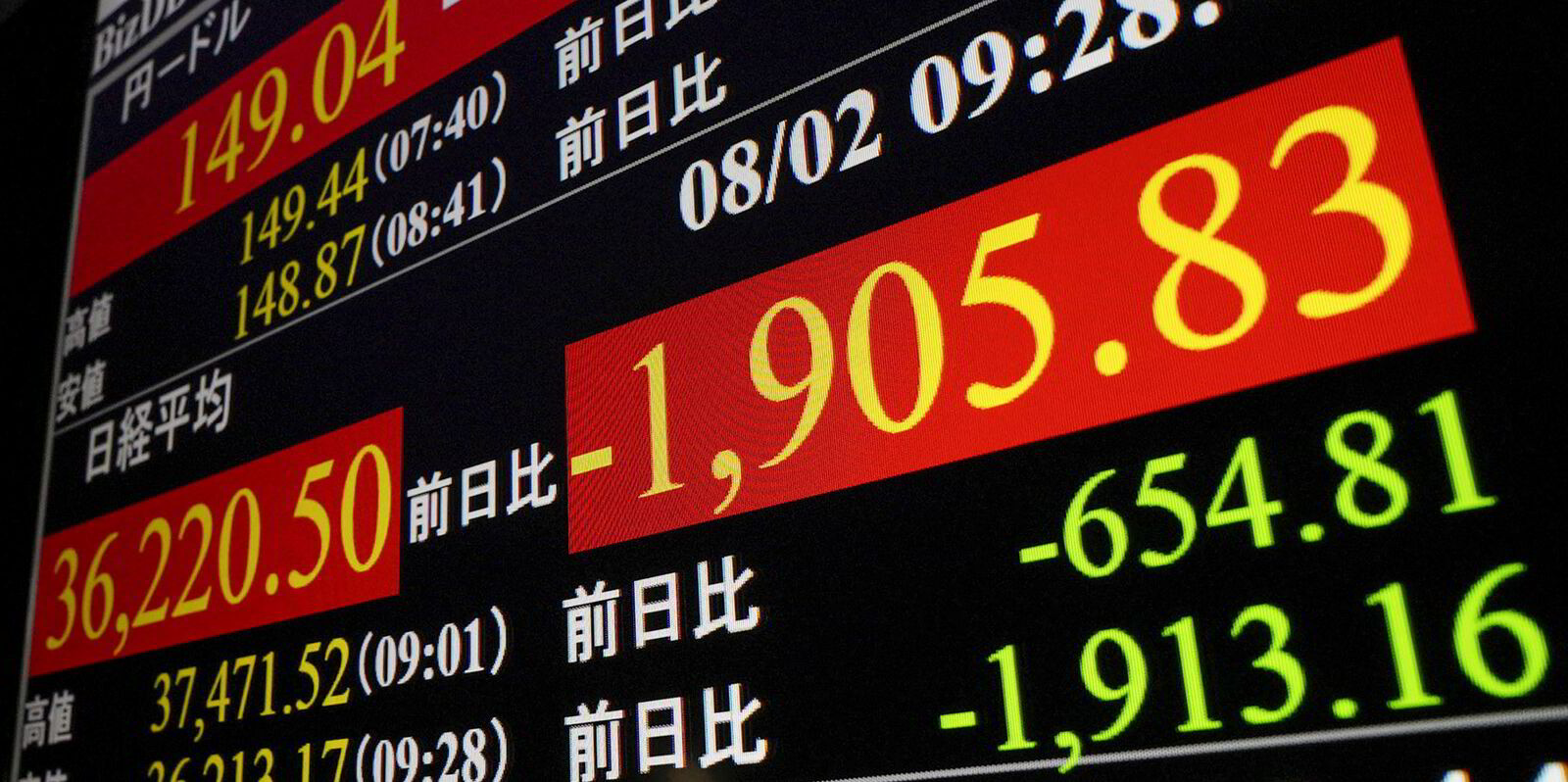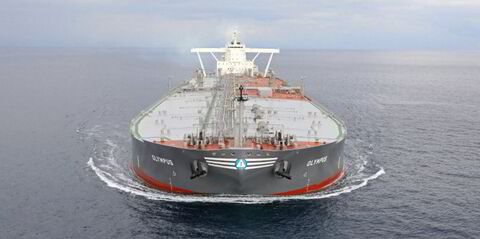Stocks around the globe took a hit on Monday following disappointing US job numbers, and shipping companies were no different.
Nearly all Oslo-listed shipping companies were down in early trading on Monday ,while Clarksons and Braemar shares took a battering in London following the largest Nikkei Stock Average drop since 1987.
Futures on Wall Street’s turbulence fear gauge, the Vix volatility index, climbed above 40 points on Monday, the highest since the first waves of the Covid-19 pandemic.
Apollo Global Management chief economist Torsten Slok said investors had been trying to size up whether or not the data from the US — which saw the nation fall well short of expectations with just 114,000 jobs added in July — was a blip or something more severe.
“The narrative has literally changed overnight,” Slok told the Financial Times.
Goldman Sachs meanwhile raised its 12-month recession odds by 10 percentage points to 25%, but said in a note quoted by Reuters that it expects the Federal Reserve to step in to ease monetary policy to try to head off a downturn.
The sell-off started in Tokyo, with the Nikkei Stock Average dropping 12.4%, erasing all gains made so far this year according to the Wall Street Journal and the deepest decline since the 14.9% drop seen on 20 October 1987.
The fear quickly spread west.
In Oslo, the biggest drops came from offshore vessel owners, with DOF Group shares falling 8.4% to NOK 97.25 ($7.93), Havila Shipping 11.5% to NOK 4.78 and Solstad Offshore 6.6% to NOK 37.90.
But the dip hit also much larger players. John Fredriksen saw his Frontline slip 2.7% to NOK 245 and bulker outfit Golden Ocean Group fell 3.6% to NOK 121.70.
Class B shares of Wallenius Wilhelmsen, the world’s largest car carrier operator, fell 4.5% to NOK 338 while chemical tanker giant Stolt-Nielsen fell 2.8% to NOK 396.
In London, shipbroker Clarksons’ shares slid 5.5% to £41.21 ($52.76) and Braemar 1.5% to £2.98.
AP Moller-Maersk class B shares, which are traded in Copenhagen, slid DKK 70 ($8.08) to $10,780.
Shipping equities had outperformed the market throughout the first part of the year. However, the tide turned in the past month, with tanker and dry bulk down by 8% and 14%, respectively, in the past month, according to Clarksons.
A drop in Chinese government spending has been blamed for some of the decline but analysts believe Chinese policymakers are ready to step in with fresh support.
“This anticipated increase in government spending could result in an increase in Chinese imports, potentially boosting shipping markets over the next six months,” Clarksons analysts said.
“Despite ongoing economic uncertainty in Western economies, such a scenario could be particularly beneficial for the shipping industry, with crude tankers expected to benefit significantly if oil demand rises.
“Similarly, the dry bulk sector would naturally benefit from stronger economic growth, as China accounts for roughly half of global tonne-mile imports.”





